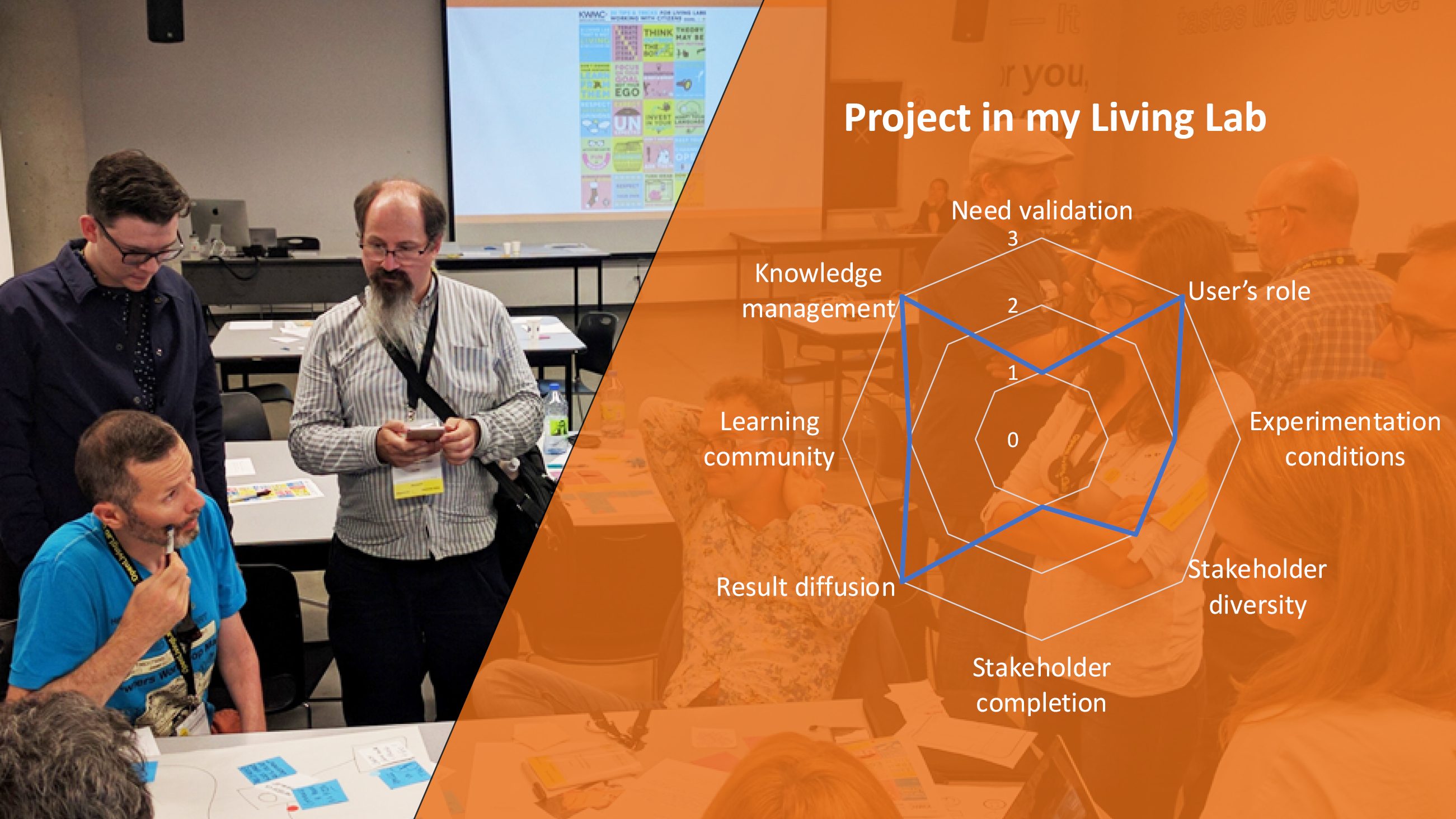Example workshop

Improve social innovation in Living Labs with meaningful markers : Co-design workshop
BACKGROUND/HISTORY AND CONTEXT OF THE WORKSHOP
By its way of including and diversifying its community of actors, breaking silo reflections, and bringing professionals and citizens to the same level, the Living Lab approach is in itself a social innovation.
For several years, the Godin Institute (France) has been working on the establishment of markers of social innovation markers. The purpose of these is a precise analysis of the elements that drive social innovation in a project, whatever its nature and state of progress. For each subject identified as a potential provider of social innovation, a contextualized scale is associated. For example, it was considered that the more beneficiaries are involved, the more social innovation will be produced. The scale is therefore as follows: 0, beneficiaries are excluded from the process ;1, beneficiaries are included in a consultative manner in the project; 2, beneficiaries are co-creators of the project; 3, beneficiaries are leaders of the project.
MAIN AIM / OBJECTIVE
For several months, the network “Living Labs in Wallonia” has been working with the Godin Institute to establish markers dedicated to Living Labs. The reflection focused on the Living Lab approach applied to project management and about ten markers with associated scale were established.
These markers were defined in relation to a project development process implemented with a Living Lab approach (exploration, co-creation and experimentation steps) and elements considered as key in the Living Lab approach (the place of users, the diversity of stakeholders, evaluation in real conditions, etc.).
By working on the establishment of these markers, the objective is to be able to evaluate the projects on an ongoing basis and to identify areas for improvement in the management of these projects.
EXPECTED OUTCOMES
In a longer term, the objective is to develop a Toolkit containing social innovation markers dedicated to Living Labs. One of the major strengths of these markers is the contextualized scale for each of them as each notch corresponds to a well-defined situation. For a specific marker, this scale makes it possible to evaluate the project objectively and based on a consensus between the project partners. This contextualized scale also facilitates reflection on how to step up one or several notches and what tools can be used to achieve it. For example, a tool to facilitate the place of beneficiaries as project leaders is a governance charter.
The objective of this workshop is to open the reflection on these markers to the entire Living Lab community, the results will be transmitted to all participants and the toolkit created will be accessible by all, in particular to the entire Living Lab community.
BRIEF OUTLINE / METHODOLOGY
After a presentation of the current markers, participants will be invited, in small groups, to brainstorm on these markers by answering the following questions: can they be improved? Is it missing? Do any of them need to be eliminated? (divergent phase). Participants will then be invited to select all the markers that they consider relevant for the Living Lab approach (convergent phase). Finally, participants will reflect on tools that could help partners in projects run with an LL approach to take them to the next level.
The equipment used will include for each table
• Flipchart sheets on which to represent the Living Lab process
• Pre-structured blank sheets for markers, and sheets for markers already identified
• Stickers for the selection of relevant markers
• Post-its to describe the tools to be associated with markers.
